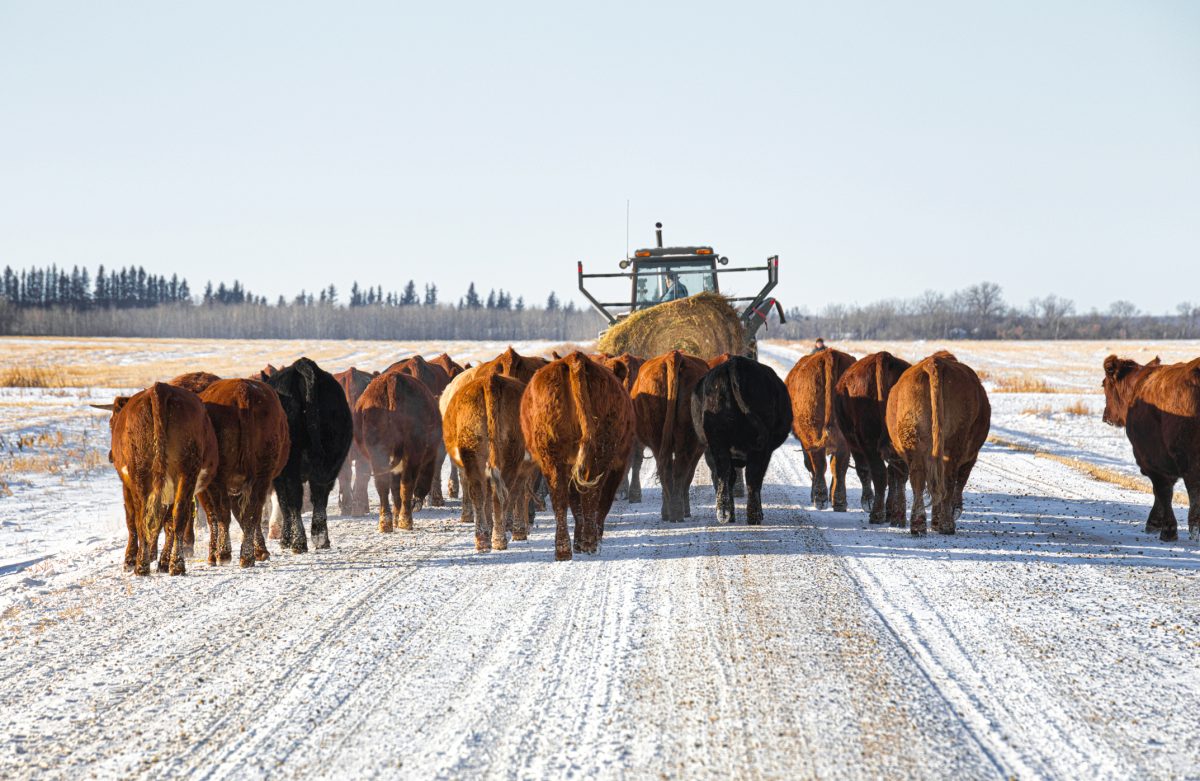Canadian ag commodity groups expect to make a case for freer trade with China during consultations now underway alongside Ottawa’s talks on a possible free trade deal with Beijing.
Federal Trade Minister Francois-Philippe Champagne on Friday announced public consultations, running until June 2, following last September’s announcement of “exploratory discussions” on a free trade agreement (FTA) between Canada and China.
The focus during the 90-day consultation period will be to “determine how Canada should best proceed regarding a possible FTA with China,” the government said Friday.
Read Also

U.S. livestock: Cattle sink ahead of semi-annual inventory report
Chicago cattle futures fell on Thursday ahead of the USDA’s semi-annual cattle inventory report. Hog futures were mixed. Most-traded April…
“This would include how to best improve market access, legal certainty and transparency for Canadian business, but also to understand any other related issues and concerns that are relevant when considering a possible FTA.”
“With 70 per cent of Canada’s hog industry’s output being exported, international market opportunities like China creates stable jobs across the country, attracts investments and contributes to growing the economy,” Canadian Pork Council chairman Rick Bergmann said in a release Tuesday.
China, the CPC noted, is Canada’s second-largest single-nation trading partner, to which Canada today exports over 326,000 tonnes of pork and pork products per year. Canadian pork imports into China rose by 144 per cent (184,510 tonnes) in 2016, the council said.
“Pork is a very popular meat in China and it is estimated that the average Chinese person consumes about 41 kg of pork per year,” compared to 22 kg per person in Canada, Bergmann said.
Rick White, CEO of the Canadian Canola Growers Association, on Monday described China as “a market that Canadian canola farmers are well-positioned to capitalize on.”
Canadian canola exports to China have risen in value from $465 million in 2007 to $2.7 billion in 2016, the CCGA said, and China is now the single biggest importer of canola seed, taking roughly 34 per cent of Canadian seed exports last year.
Eliminating China’s current tariffs on canola seed, oil and meal would create a “tangible advantage” for Canadian canola, the CCGA said.
Also, closer economic relationships there “could provide an anchor to solve market-impeding, non-tariff trade barriers such as slow approvals of inputs to canola production, as well as providing a mechanism for managing trade issues that may arise in the future.”
An analysis done for the Canola Council of Canada found tariff-free access to China could boost Canadian exports of canola seed, oil and meal by up to $1.2 billion a year and create 33,000 more jobs in Canada from increased exports of canola alone.
The increased exports would be the equivalent of 1.8 million tonnes of canola or about 10 per cent of Canada’s current annual canola production, the council said in a separate release Monday. “Though it’s a big number, it reflects an opportunity the canola value chain sees as realistic.”
China’s tariffs on imported canola seed today run at nine per cent, compared to three per cent on soybean imports, the council said. In 2016, that tariff made canola about $32 per tonne more expensive than it would be at the same tariff rate as soybeans. China also has tariffs on nine per cent on canola oil and five per cent on canola meal, the council added.
China, the council noted, has been eliminating tariffs on oilseeds in its trade talks with other countries.
Barriers
Resolving non-tariff barriers would also be required to take full advantage of Chinese demand, said Brian Innes, the council’s vice-president for government relations.
Recent uncertainty over Chinese concerns about blackleg illustrated the importance of using science to establish predictable trade rules, he said, and predictable and science-based decisions for the approval of new biotech canola traits would also be important.
“Our trade with China has been growing but can still be unpredictable and hampered by barriers,” Innes said. “A free trade agreement would bring more stability to our trading relationship.”
Tariff elimination and tariff quota expansion for wheat, barley, pulses, soybeans, canola, sugar and sugar-containing products would provide opportunities for the Canadian ag industry, the Canadian Agri-Food Trade Alliance said in a separate statement last month.
“In some cases, Canada faces a significant trade imbalance with China, particularly in value-added prepared foods, and is at a competitive disadvantage compared to other countries such as Australia who have signed free trade agreements.”
Dealing with non-tariff barriers such as “inconsistent regulations and testing” could also reduce export costs and expand trade in sectors such as pork and beef, CAFTA added.
“Regular government-to-government communications around policies and regulations affecting trade would also improve predictability for Canadian agriculture and agri-food exporters.” — AGCanada.com Network















